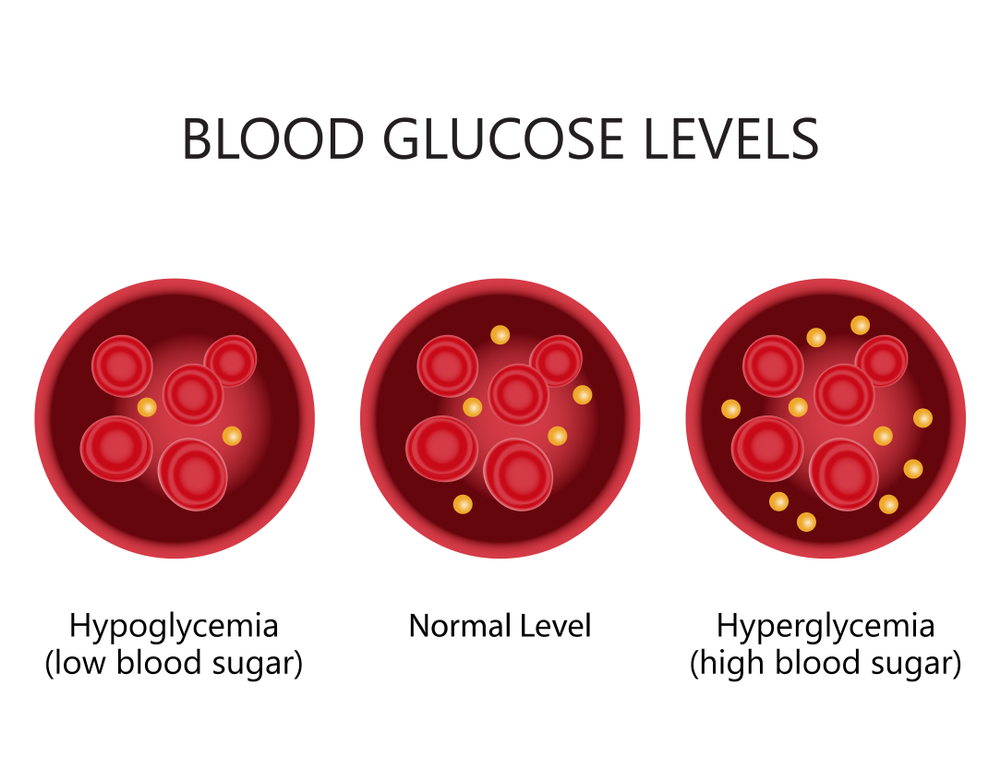Monitor your blood sugar levels closely and consult your doctor immediately. Adjust medications and follow a diabetic-friendly diet.
After surgery, managing high blood sugar is crucial for recovery. Elevated blood sugar can lead to complications, including infections and delayed healing. It’s important to keep a close watch on blood sugar levels and maintain communication with your healthcare provider.
Following a diabetic-friendly diet, staying hydrated, and adhering to prescribed medications can help stabilize glucose levels. Physical activity, as recommended by your doctor, can also aid in managing blood sugar. Proper management ensures a smoother recovery and reduces the risk of further complications. Always consult your healthcare team for personalized advice and adjustments to your treatment plan.
Recognizing High Blood Sugar Post-surgery
High blood sugar after surgery can be dangerous. Recognizing the signs quickly is crucial. High blood sugar, also known as hyperglycemia, can slow healing. It may also lead to infections. Knowing the symptoms and monitoring glucose levels helps manage this condition.
Symptoms Of Hyperglycemia
Recognizing hyperglycemia symptoms is essential. Here are some common signs:
- Increased thirst
- Frequent urination
- Blurry vision
- Fatigue
- Headaches
If you notice these symptoms, check your blood sugar levels. Keep track of any changes and inform your doctor.
Importance Of Monitoring Glucose Levels
Monitoring glucose levels helps detect problems early. Use a glucose meter to check your levels regularly. Record your readings in a log. This helps your doctor adjust your treatment if needed.
Here is a simple table to guide you:
| Time | Normal Range (mg/dL) |
|---|---|
| Before Meals | 80-130 |
| 2 Hours After Meals | Less than 180 |
If your readings are outside these ranges, seek medical advice. Proper monitoring can prevent complications and keep you healthy.
Immediate Actions For Elevated Blood Sugar
After surgery, high blood sugar can pose significant risks. Taking immediate action is critical to avoid complications. Here are essential steps to manage elevated blood sugar levels post-surgery.
Adjusting Insulin Administration
If blood sugar levels are high, insulin needs adjustment. Consult your healthcare provider for precise dosage instructions.
Regularly monitor blood sugar levels. Use a glucose meter to track changes. Make adjustments based on your doctor’s advice.
Follow a structured schedule for insulin administration. Consistency helps maintain stable blood sugar levels.
Consider the following table for insulin adjustment:
| Blood Sugar Level (mg/dL) | Insulin Adjustment (Units) |
|---|---|
| 180-200 | +2 Units |
| 200-250 | +4 Units |
| 250-300 | +6 Units |
| 300+ | Consult Doctor |
Hydration To Lower Glucose
Drinking water helps lower blood sugar levels. Aim for at least 8 glasses a day.
Water dilutes the sugar in your bloodstream. This helps kidneys flush out excess glucose through urine.
Avoid sugary drinks. They can spike blood sugar levels further.
Here are some tips for staying hydrated:
- Carry a water bottle with you.
- Set reminders to drink water throughout the day.
- Consume water-rich foods like cucumber and watermelon.
Proper hydration is a simple yet effective way to manage high blood sugar post-surgery.
Dietary Adjustments For Blood Sugar Control
After surgery, managing blood sugar levels is crucial. Dietary adjustments play a significant role in stabilizing glucose levels. Here are some tips to help you control blood sugar through your diet.
Foods To Avoid
Certain foods can spike your blood sugar levels. These should be avoided:
- Sugary drinks like soda and fruit juices
- Refined carbs such as white bread and pastries
- Trans fats found in fried and processed foods
- High-fat dairy products like whole milk and cream
- High-sugar snacks including candies and cookies
Recommended Foods For Glycemic Management
Choose foods that help regulate blood sugar. These foods are beneficial:
- Whole grains such as quinoa and brown rice
- Leafy greens like spinach and kale
- Lean proteins including chicken and tofu
- Healthy fats from avocados and nuts
- Low-glycemic fruits such as berries and apples
Here is a table of foods to include and avoid:
| Foods to Include | Foods to Avoid |
|---|---|
| Whole grains | Refined carbs |
| Leafy greens | Sugary drinks |
| Lean proteins | Trans fats |
| Healthy fats | High-fat dairy |
| Low-glycemic fruits | High-sugar snacks |
:max_bytes(150000):strip_icc()/VWH_Illustration_High-Blood-Sugar-Causes-Without-Diabetes_Illustrator_Jessica-Olah_FINAL-f3a876997f1645249b0372c3c15fa0c9.jpg)
Credit: www.verywellhealth.com
Physical Activity As A Regulatory Tool
After surgery, managing blood sugar levels becomes crucial. Physical activity serves as a powerful regulatory tool. It helps keep blood sugar levels stable. This section will discuss safe exercises post-operation and activity guidelines for patients.
Safe Exercises Post-operation
Engaging in physical activity after surgery can aid recovery. It’s essential to choose exercises that are safe and gentle on the body. Here are some recommended activities:
- Walking: A low-impact exercise that improves circulation.
- Stretching: Keeps muscles flexible and relieves tension.
- Seated Exercises: Ideal for those with limited mobility.
Activity Guidelines For Patients
Patients need clear guidelines to ensure safe and effective physical activity. Here are some tips to follow:
- Consult Your Doctor: Always get medical advice before starting any exercise.
- Start Slow: Begin with light activities and gradually increase intensity.
- Listen to Your Body: Stop immediately if you feel pain or discomfort.
- Stay Hydrated: Drink plenty of water before, during, and after exercise.
By following these guidelines, patients can use physical activity to help regulate their blood sugar levels effectively.
Medication Management
Managing blood sugar levels after surgery is crucial for recovery. Proper medication management can help keep blood sugar levels stable. This section will discuss important aspects of medication management.
Insulin And Oral Hypoglycemics
Insulin and oral hypoglycemics are essential for controlling high blood sugar. Insulin helps lower blood sugar quickly. Oral hypoglycemics help keep blood sugar stable. Knowing how to use these medications is important.
- Insulin: Insulin is injected and works quickly.
- Oral Hypoglycemics: These are pills taken by mouth.
Your doctor will decide the best medication for you. Some people need insulin, while others may use pills. Always follow your doctor’s instructions.
Timing And Dosage Considerations
The timing and dosage of medication are crucial. Taking medicine at the right time helps keep blood sugar stable. Your doctor will give you a schedule.
| Medication | Timing | Dosage |
|---|---|---|
| Insulin | Before meals | As prescribed |
| Oral Hypoglycemics | With meals | As prescribed |
Always take your medication on time. Missing a dose can cause high blood sugar. If you miss a dose, follow your doctor’s advice.
- Set reminders to take your medication.
- Keep a log of your blood sugar levels.
- Notify your doctor of any side effects.
Taking the correct dosage is also important. Too much medication can cause low blood sugar. Too little can cause high blood sugar. Your doctor will determine the right dosage for you.
By following these guidelines, you can manage your blood sugar effectively. Always consult with your healthcare provider for personalized advice.

Credit: avavascular.com
Communication With Healthcare Providers
Effective communication with healthcare providers is essential when managing high blood sugar after surgery. Proper communication ensures timely adjustments to your treatment plan. This can help prevent complications and promote faster recovery.
When To Contact Your Doctor
Knowing when to contact your doctor is crucial. Here are some situations:
- Your blood sugar remains above 180 mg/dL for more than a few hours.
- You experience symptoms like extreme thirst, frequent urination, or fatigue.
- You notice signs of infection, such as redness, swelling, or fever.
- Your blood sugar levels are consistently high despite medication adjustments.
What Information To Share
When you contact your doctor, provide specific information. This helps them make informed decisions:
| Information to Share | Why It’s Important |
|---|---|
| Blood sugar readings | Shows trends and helps adjust medication |
| Medications taken | Ensures no interactions or missed doses |
| Dietary intake | Helps identify dietary influences on blood sugar |
| Physical activity | Assesses impact on blood sugar levels |
| Symptoms experienced | Aids in diagnosing potential complications |
Keep a log of your blood sugar readings, medications, and symptoms. This log provides a comprehensive overview for your healthcare provider. It also helps you track your progress and identify patterns.
Long-term Strategies To Prevent Recurrence
Managing high blood sugar after surgery is crucial. Implementing long-term strategies helps prevent recurrence. These strategies focus on lifestyle modifications and regular follow-up and testing. Consistency is key to keeping blood sugar levels stable.
Lifestyle Modifications
Adopting a healthy lifestyle is essential. Here are some lifestyle changes to consider:
- Diet: Eat balanced meals. Include vegetables, lean proteins, and whole grains.
- Exercise: Engage in regular physical activity. Aim for at least 30 minutes daily.
- Weight Management: Maintain a healthy weight. This helps control blood sugar levels.
- Hydration: Drink plenty of water. Avoid sugary drinks and alcohol.
- Stress Management: Practice relaxation techniques. Try yoga or meditation.
Regular Follow-up And Testing
Consistent monitoring is vital. Regular follow-up with healthcare providers ensures timely interventions. Here are some key steps:
- Frequent Blood Sugar Checks: Monitor blood sugar levels daily. Use a home glucose meter.
- Scheduled Doctor Visits: Visit your doctor regularly. Discuss any changes in your condition.
- Routine Lab Tests: Conduct HbA1c tests. This test shows long-term blood sugar control.
- Medication Review: Review medications with your doctor. Ensure they are effective and appropriate.
| Strategy | Details |
|---|---|
| Diet | Balanced meals with vegetables, lean proteins, and whole grains |
| Exercise | At least 30 minutes of physical activity daily |
| Weight Management | Maintain a healthy weight |
| Hydration | Drink plenty of water |
| Stress Management | Practice relaxation techniques |
Implementing these strategies can significantly reduce the risk of high blood sugar recurrence. Stay consistent and proactive in your approach.

Credit: specialtycareus.com
Frequently Asked Questions
How Do I Get My Blood Sugar Down After Surgery?
Monitor your blood sugar levels regularly. Follow a balanced diet with low-carb foods. Stay hydrated and exercise lightly. Take prescribed medications as directed. Consult your doctor for personalized advice.
What Is A Normal Blood Sugar Level After Surgery?
A normal blood sugar level after surgery ranges from 140 to 180 mg/dL. Monitoring is crucial for recovery. Consult your doctor for personalized advice.
What Is The Highest Blood Sugar Level That Is Safe?
The highest safe blood sugar level is typically under 140 mg/dL after meals. Consult your doctor for personalized advice.
How To Reduce Blood Sugar Level Immediately?
To reduce blood sugar immediately, drink water, exercise, and eat high-fiber foods. Avoid sugary foods and monitor levels.
What Causes High Blood Sugar After Surgery?
Stress from surgery can increase blood sugar levels due to the release of stress hormones.
How Can I Manage High Blood Sugar Post-surgery?
Monitor your blood sugar regularly, follow your doctor’s advice, and adjust your diet and medications as needed.
Can High Blood Sugar Delay Healing?
Yes, elevated blood sugar can slow down the healing process and increase the risk of infections.
Should I Change My Diet After Surgery?
Yes, a balanced diet low in sugars and refined carbs can help manage blood sugar levels.
Conclusion
Managing high blood sugar after surgery is crucial for a smooth recovery. Monitor levels regularly and follow medical advice. A balanced diet and proper medication can help control blood sugar. Consult your healthcare provider for personalized guidance. Taking these steps ensures a healthier, quicker recovery process.
Stay proactive about your health.





Leave a Reply